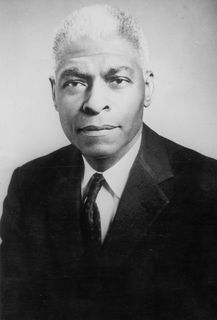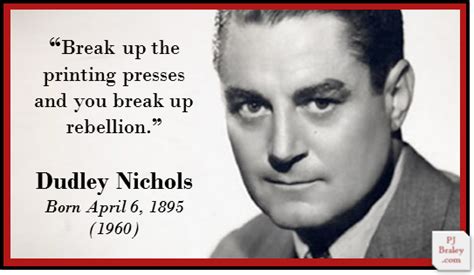Top 1200 Moral Failure Quotes & Sayings - Page 15
Explore popular Moral Failure quotes.
Last updated on December 18, 2024.
Moral improvement (or perfecting) require an evolution leading to a higher consciousness, which is the true torch of life; it is what we have failed too much to appreciate, and that which would be fatal to fail to appreciate any longer ("pluslongtemps", Fr.); For if we do not take it upon ourselves to remedy in time to the moral colapse (or bankruptcy) that already threaten, the whole civilisation will risks to disappear.
The fact that a belief has a good moral effect upon a man is no evidence whatsoever in favor of its truth. I'm not contending in a dogmatic way that there is not a God. What I'm contending is that we don't know that there is. I don't like the word "absolute." I don't think there is anything absolute whatever. The moral law, for example, is always changing. At one period in the development of the human race, almost everybody thought cannibalism was a duty.
The phenomenon of economic ignorance is so widespread, and its consequences so frightening, that the objective of reducing that ignorance becomes a goal invested with independent moral worth. But the economic education needed to reduce such ignorance must be based on austere, objective, scientific content—with no ideological or moral content of its own.
The moral government of God is a movement in a line onwards towards some grand consummation, in which the principles, indeed, are ever the same, but the developments are always new - in which, therefore, no experience of the past can indicate with certainty what new openings of truth, what hew manifestations of goodness, what new phases of the moral heaven may appear.
The social intuitionist model offers an explanation of why moral and political arguments are so frustrating: because moral reasons are the tail wagged by the intuitive dog. A dog’s tail wags to communicate. You can’t make a dog happy by forcibly wagging its tail. And you can’t change people’s minds by utterly refuting their arguments.
Twenty-two years ago Judge [then-Senator Stephen] Douglas and I first became acquainted. We were both young then; he a trifle younger than I. Even then, we were both ambitious; I, perhaps, quite as much so as he. With me, the race of ambition has been a failure--a flat failure; with him it has been one of splendid success.
Nostalgia is a necessary thing, I believe, and a way for all of us to find peace in that which we have accomplished, or even failed to accomplish. At the same time, if nostalgia precipitates actions to return to that fabled, rosy-painted time, particularly in one who believes his life to be a failure, then it is an empty thing, doomed to produce nothing but frustration and an even greater sense of failure.
Why does everyone take for granted that we don't learn to grow arms, but rather, are designed to grow arms? Similarly, we should conclude that in the case of the development of moral systems; there's a biological endowment which in effect requires us to develop a system of moral judgment and a theory of justice, if you like, that in fact has detailed applicability over an enormous range.
Prayer is often a temptation to bank on a miracle of God instead of on a moral issue, i.e., it is much easier to ask God to do my work than it is to do it myself. Until we are disciplined properly, we will always be inclined to bank on God's miracles and refuse to do the moral thing ourselves. It is our job, and it will never be done unless we do it.
I will persist until I succeed. I was not delivered into this world into defeat, nor does failure course in my veins. I am not a sheep waiting to be prodded by my shepperd. I am lion and I refuse to talk, to walk, to sleep with the sheep. The slaughterhouse of failure is not my destiny. I will persist until I succeed.
I declare that this government is no longer a constitutional and moral form of government. I will deal with it, and I will obey its laws, and I will support it when it is defending our country from foreign and domestic enemies. I will vote in its elections and participate in its political debates. But I will never accept it. I aim at a restoration of constitutional and moral order.
Every day we make our way through a moral forest, along pathways ever branching. Often we get lost. When the array of paths before us is so perplexing that we can't make a choice, or won't, we can hope that we will be given a sign to guide us. A reliance on signs, however, can lead to the evasion of all moral obligations, and thus earn a terrible judgment.
In the spiritual domain, criticism is love turned sour. In a wholesome spiritual life there is no room for criticism. The critical faculty is an intellectual one, not a moral one. If criticism becomes a habit it will destroy the moral energy of the life and paralyse spiritual force. The only person who can criticise human beings is the Holy Spirit.
What the world needs today is a definite, spiritual mobilization of the nations who believe in God against this tide of Red agnosticism. It needs a moral mobilization against the hideous ideas of the police state and human slavery. I suggest that the United Nations should be reorganized without the Communist nations in it. It is a proposal based solely upon moral, spiritual and defense foundations. It is a proposal to redeem the concept of the United Nations to the high purpose for which it was created. It is a proposal for moral and spiritual cooperation of God-fearing free nations. And in rejecting an atheistic other world, I am confident that the Almighty God will be with us.
And the moral of the story is that you don't remember what happened. What you remember becomes what happened. And the second moral of the story, if a story can have multiple morals, is that Dumpers are not inherently worse than Dumpees - breaking up isn't something that gets done to you; it's something that happens with you.
A woman's greatest and most perduring failure will be her failure to love. It is certainly not without significance that so many women presently pressing for power on the political, sociological or ecclesial scene are unbeautiful in their unsmilling press for dominance. Contorted faces and clenched fists are particularly repellant in woman, who is gifted with unique powers to radiate love and extend healing hands.
What we face is a comprehensive contraction of our activities, due to declining fossil fuel resources and other growing scarcities. Our failure is the failure to manage contraction. It requires a thoroughgoing reorganization of daily life. No political faction currently operating in the USA gets this. Hence, it is liable to be settled by a contest for dwindling resources and there are many ways in which this won't be pretty.
The acceptance of ambiguity implies more than the commonplace understanding that some good things and some bad things happen to us. It means that we know that good and evil are inextricably intermixed in human affairs; that they contain, and sometimes embrace, their opposites; that success may involve failure of a different kind, and failure may be a kind of triumph.
Gratitude is not a spiritual or moral dessert which we may take or push away according to the whims of the moment, and in either case without material consequences. Gratitude is the very bread and meat of spiritual and moral health, individually and collectively. What was the seed of disintegration that corrupted the heart of the ancient world beyond the point of divine remedy...? What was it but ingratitude?
Jesus of Nazareth could have chosen simply to express Himself in moral precepts; but like a great poet He chose the form of the parable, wonderful short stories that entertained and clothed the moral precept in an eternal form. It is not sufficient to catch man's mind, you must also catch the imaginative faculties of his mind.
Rock bottom is an inability to cope with the commonplace that is so extreme it makes even the grandest and loveliest things unbearable...Rock bottom is everything out of focus. It's a failure of vision, a failure to see the world as it is, to see the good in what it is, and only to wonder why the hell things look the way they do and not some other way.
I am among those who believe that our Western civilization is on its way to perishing. It has many commendable qualities, most of which it has borrowed from the Christian ethic, but it lacks the element of moral wisdom that would give it permanence. Future historians will record that we of the twentieth century had intelligence enough to create a great civilization but not the moral wisdom to preserve it.
... life is moral responsibility. Life is several other things, we do not deny. It is beauty, it is joy, it is tragedy, it is comedy, it is psychical and physical pleasure, it is the interplay of a thousand rude or delicate motions and emotions, it is the grimmest and the merriest motley of phantasmagoria that could appeal to the gravest or the maddest brush ever put to palette; but it is steadily and sturdily and always moral responsibility.
Conscience is the most dangerous thing you possess. If you wake it up, it may destroy you. To live a life of total moral rigor is not necessarily the way to go. It's the path for very few people. Most people need to come up with some kind of middle ground that satisfies their practical, moral, and philosophical esthetic needs.
Moral theory develops from the divine command theory of medieval Christian philosophy, mixed up with a bit of ancient pagan virtue theory, to the purely secular moral sentiment and interpersonal reaction theories of Smith and Hume, to Kant's attempt to restore command theory but with something supersensible in the individual rather than God as the source of authority.
Science is a magnificent force, but it is not a teacher of morals. It can perfect machinery, but it adds no moral restraints to protect society from the misuse of the machine. It can also build gigantic intellectual ships, but it constructs no moral rudders for the control of storm tossed human vessel. It not only fails to supply the spiritual element needed but some of its unproven hypotheses rob the ship of its compass and thus endangers its cargo.
Above all, do not give up your moral and political autonomy by accepting in somebody else's terms the illiberal practicality of the bureaucratic ethos or the liberal practicality of the moral scatter. Know that many personal troubles cannot be solved merely as troubles, but must be understood in terms of public issues and in terms of the problems of history making.
To try to reform all the power structures at once would leave us with no power structure to use in our project. In any case, we will be able to see that absolute moral renewal could be attempted only by an absolute power and that a tyrannous force such as this must destroy the whole moral life of man, not renew it.
All voting is a sort of gaming, like checkers or backgammon, with a slight moral tinge to it, a playing with right and wrong, with moral questions; and betting naturally accompanies it. The character of the voters is not staked. I cast my vote, perchance, as I think right; but I am not vitally concerned that right should prevail. I am willing to leave it to the majority.
The bourgeoisie, which far surpasses the proletariat in the completeness and irreconcilibility of its class consciousness, is vitally interested in imposing its moral philosophy upon the exploited masses. It is exactly for this purpose that the concrete norms of the bourgeois catechism are concealed under moral abstractions...The appeal to abstract norms is not a disinterested philosophic mistake but a necessary element in the mechanics of class deception.
When we are angry, we will use a lie as fast as a truth if we can hurt with it. Anger feels strong but it is actually a disguised weakness. To someone with their eyes closed, all the pictures that you show them will seem the same. It is better to whisper words of love instead of trying to find a better picture. The end of a relationship is not a failure any more than the end of a book is a failure.
The Consequentialist trinity is typically regarded in this way: Bentham is crude, Mill's writings are full of howlers and inconsistencies, and Sidgwick was too smart to fully embrace Consequentialism. All of these great traditions in moral philosophy express strands of our moral consciousness and they should all be treated as research programs rather than as fully determinate views that can be leveled by a counterexample or by a clever argument.
Our knowledge and our ability to handle our problems progress through the open conflict of ideas, through the tests of phenomenological adequacy, inner consistency, and practical-moral consequences. Reason may err, but it can be moral. If we must err, let it be on the side of our creativity, our freedom, our betterment.
You always want to try, in everything you do, to attempt something you've never tried before, and the only way to succeed at that is through failure, and the only way to succeed through failure is just banging your head against the wall over and over until you get to that interesting thing on the other side.
It should be apparent that the belief in objectivity in journalism, as in other professions, is not just a claim about what kind of knowledge is reliable. It is also a moral philosophy, a declaration of what kind of thinking one should engage in, in making moral decisions. It is, moreover, a political commitment, for it provides a guide to what groups one should acknowledge as relevant audiences for judging one's own thoughts and acts.
What does this word holiness really mean? Is it a negative kind of piety from which so many people have shied away? No, of course not! Holiness in the Bible means moral wholeness-- a positive quality which actually includes kindness, mercy, purity, moral blamelessness and godliness. It is always to be thought of in a positive, white intensity of degree.
How much atonement is enough? The bombing must be allowed as at least part-payment: those of our young people who are concerned about the moral problem posed by the Allied air offensive should at least consider the moral problem that would have been posed if the German civilian population had not suffered at all.
We have the - the longest, friendliest border, you know, for the - for the longest time in the history - in recorded history, really, with Canada. And they get to sit on their moral perch, you know, take the moral high ground, say, oh, United States, shame on you about Iraq. They make us look bad internationally. And it's really not fair.
In times of uncertainty, we tend to move away from deterministic world views. And when we try to find moral footing for our actions, we compare ourselves to the foil of all foils, the Nazi period. It's a quest for moral certainty by saying, "Even if we're not doing great these days, at least we're not the Third Reich." Which can be consoling or alarmist. There's always a present-day agenda behind it.
The strength of an individual is not in his extreme freedom and libertine lifestyle, but in the stalwartness of his character and his moral vigor. The society is made of individuals. What is true for an individual is also true for the society. A society that is not founded on moral values is doomed to fall.
The inner experience of fallure is totally different than failure. Going to fallure means 100% commitment - you leave nothing in reserve, no mental or physical resource untapped, you never give yourself a psychological out. Failure means making a decision to let go, to be less than 100% committed, when confronted by fear, pain and uncertainty.























































